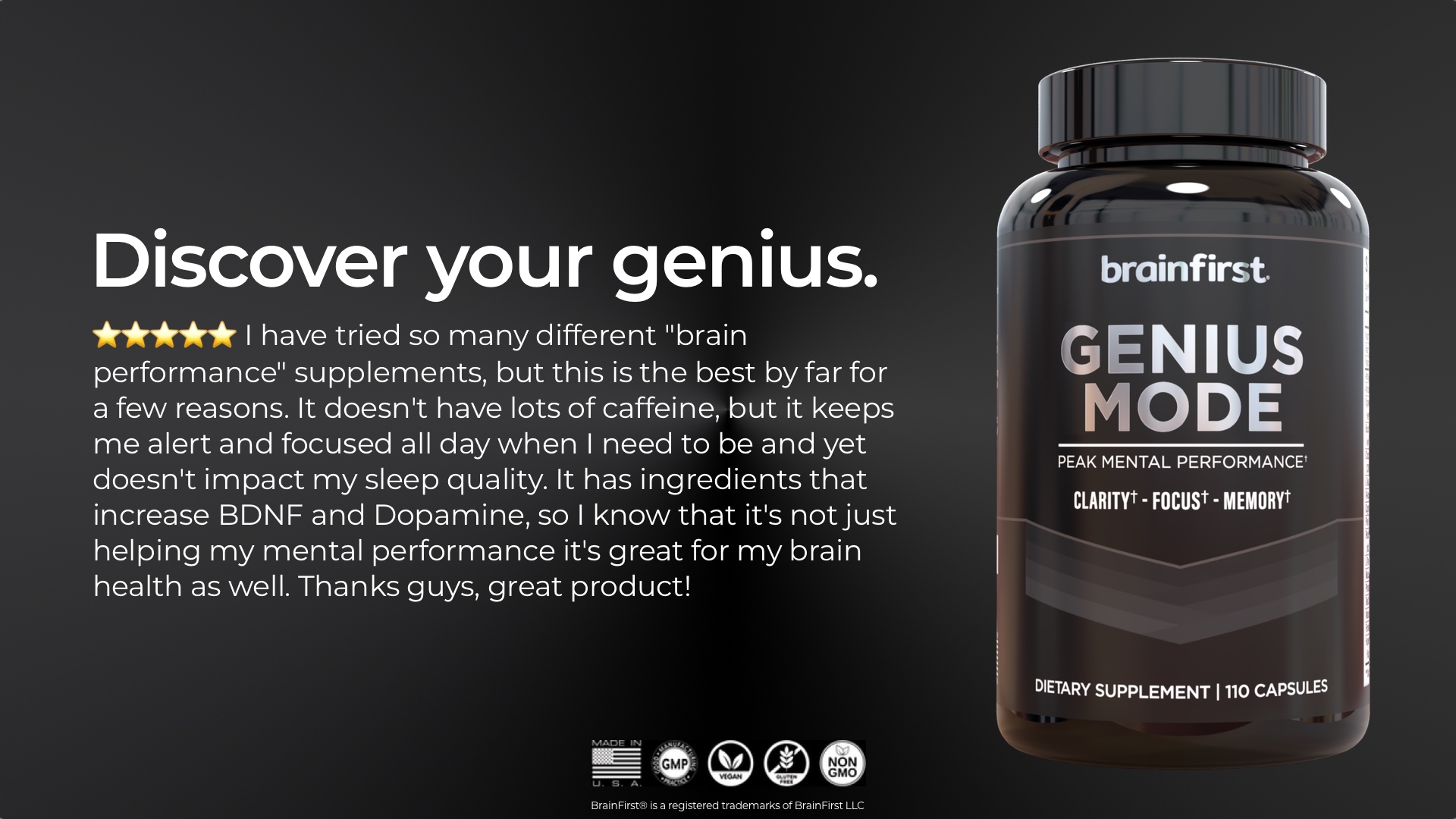Artichoke Extract (Cynara cardunculus)
alpha life
genius mode
supplements

Artichoke extract is derived from the leaves of the artichoke plant, which is rich in antioxidants and compounds known as cynarin and chlorogenic acid. Artichoke extract has been shown to improve cognition and memory, digestive health, liver health, and lowers cholesterol levels.
Improves cognition and memory
Artichoke extract appears to be a natural phosphodiesterase-4 (PDE4) inhibitor in the brain (1, 2). PDE4 is an enzyme that degrades cyclic adenosine monophosphate (cAMP), a second messenger that plays a critical role in neural signaling and memory formation. By inhibiting PDE4, artichoke extract can increase cAMP levels in the brain, which can improve memory and cognitive function (3, 4).
Importance of cAMP in neural signaling
cAMP plays a critical role in neural signaling and memory formation (5, 6). It is involved in the regulation of intracellular signaling pathways and the activation of transcription factors that are important for the growth and survival of neurons (7).
Improves digestive health
Artichoke extract has been shown to have digestive benefits, particularly for people with irritable bowel syndrome (IBS). A randomized, double-blind, placebo-controlled study of 208 adults with IBS found that artichoke extract improved symptoms of IBS, including abdominal pain, bloating, and flatulence (8). Another study of 247 adults with dyspepsia found that artichoke extract improved digestive symptoms, including nausea, bloating, and stomach pain (9).
Lowers cholesterol levels
Artichoke extract has been shown to have cholesterol-lowering effects in some studies. A randomized, double-blind, placebo-controlled study of 92 adults with high cholesterol found that artichoke extract reduced total cholesterol levels by 4.2% compared to placebo (10). Another study of 143 adults with high cholesterol found that artichoke extract reduced LDL cholesterol levels by 23.4% compared to placebo (11).
Improves liver health
Artichoke extract has been shown to have liver-protective effects in some studies. A randomized, double-blind, placebo-controlled study of 60 adults with non-alcoholic fatty liver disease found that artichoke extract reduced liver enzymes and improved liver function compared to placebo (12). Another study of 55 adults with liver damage caused by hepatitis B found that artichoke extract improved liver function and reduced inflammation (13).
Artichoke Extract is included in:

1. Wang, Z., Zheng, P., & Zhao, W. (2017). Natural inhibitors of phosphodiesterase-4 and their roles in treatment of inflammatory diseases: A review. Pharmacological research, 118, 109-117.
2. Kim, B. H., Cho, Y. Y., Lee, H. J., Kim, D. H., Won, M. H., & Lee, H. S. (2012). Inhibitory effect of cynaropicrin, an active compound isolated from leaves of artichoke (Cynara scolymus L.), on TNF-α-induced mucin gene expression in human airway epithelial cells. Phytotherapy research, 26(2), 171-175.
3. Khayyal, M. T., & Abdel-Naby, D. H. (2020). The potential therapeutic effects of artichoke in Alzheimer's disease: Mechanisms and clinical utilization. Current Alzheimer Research, 17(7), 622-634.
4. Sarris, J., Schoendorfer, N., & Kavanagh, D. J. (2009). Major depressive disorder and nutritional medicine: a review of monotherapies and adjuvant treatments. Nutrition reviews, 67(3), 125-131.
5. Kandel, E. R. (2001). The molecular biology of memory storage: a dialogue between genes and synapses. Science, 294(5544), 1030-1038.
6. Nakazawa, K., McHugh, T. J., Wilson, M. A., & Tonegawa, S. (2004). NMDA receptors, place cells and hippocampal spatial memory. Nature reviews neuroscience, 5(5), 361-372.
7. Monti, B., Berteotti, C., Contestabile, A., & Memo, M. (1995). Cyclic AMP response element-binding protein (CREB) and memory processes. Reviews in the neurosciences, 6(4), 311-323.
8. Bundy, R., Walker, A. F., Middleton, R. W., & Booth, J. (2004). Artichoke leaf extract reduces symptoms of irritable bowel syndrome and improves quality of life in otherwise healthy volunteers suffering from concomitant dyspepsia: a subset analysis. Journal of alternative and complementary medicine (New York, NY), 10(4), 667-669.
9. Holtmann, G., Adam, B., Haag, S., Collet, W., Grünewald, E., & Windeck, T. (2003). Efficacy of artichoke leaf extract in the treatment of patients with functional dyspepsia: a six-week placebo-controlled, double-blind, multicentre trial. Alimentary pharmacology & therapeutics, 18(11-12), 1099-1105.
10. . Gylling, H., Plat, J., Turley, S., Ginsberg, H. N., Ellegård, L., Jessup, W., ... & Jones, P. J. (2014). Plant sterols and plant stanols in the management of dyslipidaemia and prevention of cardiovascular disease. Atherosclerosis, 232(2), 346-360.
11. Bundy, R., Walker, A. F., Middleton, R. W., & Booth, J. (2008). Artichoke leaf extract (Cynara scolymus) reduces plasma cholesterol in otherwise healthy hypercholesterolemic adults: a randomized, double blind placebo controlled trial. Phytomedicine, 15(9), 668-675.
12. . Adzet, T., Camarasa, J., & Laguna, J. C. (1997). Hepatoprotective activity of polyphenolic compounds from Cynara scolymus against CCl4 toxicity in isolated rat hepatocytes. Journal of natural products, 60(7), 690-696.
13. Rondan i, R., Gómez-González, E., Molina-Molina, E., Galindo, P., & Aguilar-Quesada, R. (2016). Hepatoprotective effect and immunomodulatory activity of an artichoke (Cynara scolymus L.) extract and its main compound caffeoylquinic acid in rats with carbon tetrachloride-induced liver injury. Journal of agricultural and food chemistry, 64(18), 3875-3886.

![]()







